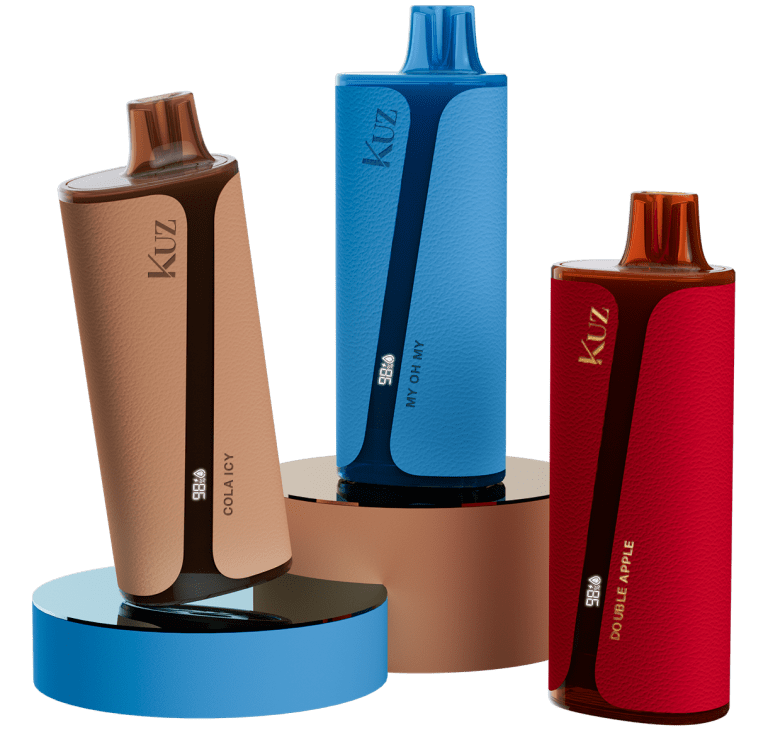Vaping has become a popular alternative to smoking, but many users wonder if their vape habit is causing them to feel more tired than usual. While nicotine is a known stimulant, various factors associated with vaping, such as dehydration, nicotine crashes, and disrupted sleep patterns, may contribute to fatigue. This article explores why vapes might make you feel tired and what you can do to combat this side effect.
Why Nicotine Causes Fatigue
Nicotine is a stimulant that initially gives users a boost of energy. However, this is often followed by a “nicotine crash,” where energy levels plummet once the effects wear off. Much like caffeine, nicotine can block certain neurotransmitters responsible for drowsiness, such as adenosine. Once the nicotine wears off, these chemicals flood back into the brain, causing feelings of tiredness and lethargy. The higher the nicotine concentration in your vape, the more significant the crash.
Oxygen Deprivation and Vaping Fatigue
Another reason vaping might make you feel tired is related to oxygen deprivation. Many vapers take deep draws and hold the vapor in their lungs longer than necessary, limiting the amount of oxygen their body receives. This lack of oxygen can lead to lightheadedness and fatigue. Ensuring proper inhale techniques and allowing your body to take in enough oxygen between draws can reduce the tiredness associated with vaping.
Dehydration’s Role in Fatigue
The primary ingredients in vape juice, Propylene Glycol (PG) and Vegetable Glycerin (VG), are known to absorb moisture from the body. This leads to dehydration, which can contribute to feelings of tiredness, dry mouth, and sluggishness. Staying hydrated while vaping is essential to counteract this effect. Dehydration also impacts cognitive function and metabolism, further reducing your energy levels.
Impact on Sleep Quality
Nicotine can also have a direct impact on your sleep quality. As a stimulant, nicotine interferes with the body’s ability to enter REM sleep, the phase where your body and mind rejuvenate. Vaping close to bedtime can disrupt your sleep cycle, leaving you feeling tired the next day, even if you get a full night’s rest. Studies suggest that even occasional vapers report poorer sleep quality compared to non-vapers.
Tips to Avoid Vaping-Related Tiredness
- Lower Your Nicotine Intake: Reducing the nicotine strength in your e-liquids can help minimize the post-vaping crash. You might also consider mixing nicotine-free liquids into your rotation to taper off slowly.
- Stay Hydrated: Ensure you’re drinking enough water throughout the day, especially when vaping. Dehydration can exacerbate tiredness and other side effects.
- Adjust Vaping Technique: Avoid taking deep draws and holding the vapor for too long. Shorter, lighter puffs allow your body to maintain proper oxygen levels.
- Avoid Vaping Before Bed: To avoid nicotine disrupting your sleep cycle, try to stop vaping at least 4 hours before going to bed. This can help your body wind down naturally.
- Take Regular Breaks: If you find that frequent vaping sessions leave you feeling fatigued, consider taking longer breaks between sessions. This allows your body to recover and avoids the cumulative effects of nicotine.
Conclusion
While vaping itself doesn’t directly cause tiredness, several factors linked to vaping—such as nicotine crashes, dehydration, and poor sleep quality—can contribute to fatigue. By adjusting your vaping habits, reducing nicotine intake, and staying hydrated, you can mitigate these effects and maintain better energy levels throughout the day. Always consider consulting with a healthcare professional if fatigue persists, as other underlying health issues may be at play.



